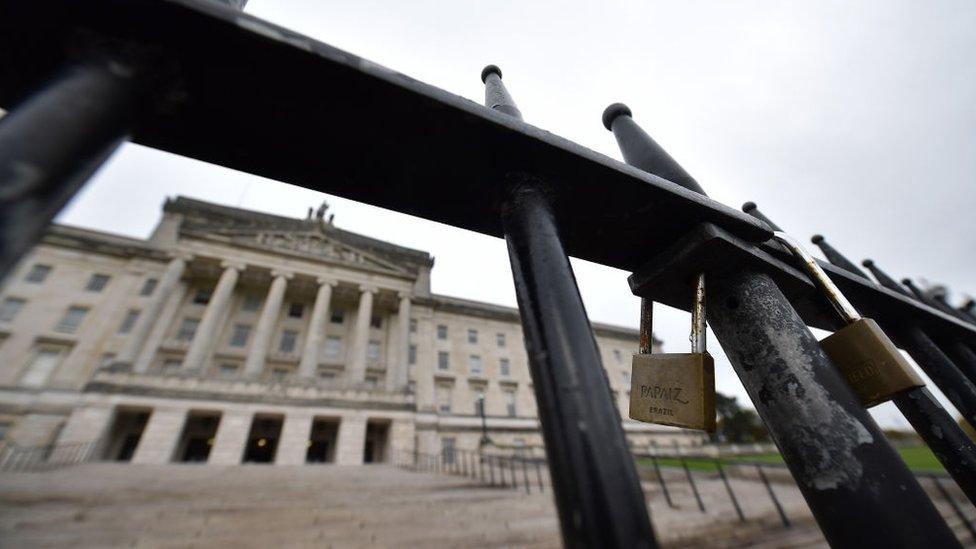Stormont crisis: Punishment budget awaits Stormont, Conor Murphy warns
- Published
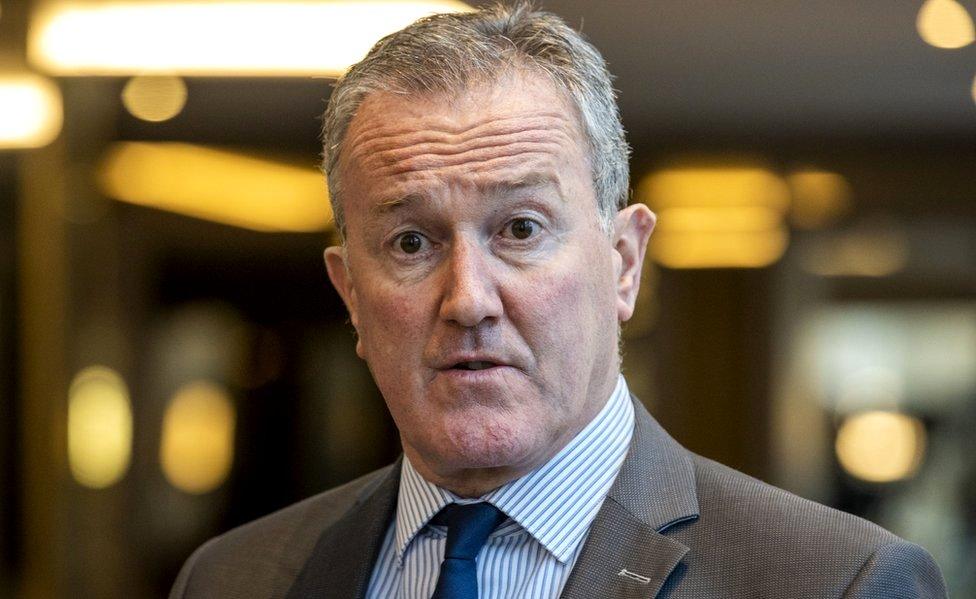
Sinn Féin's former Stormont finance minister Conor Murphy said he expected it would be the "most hard and tough budget"
Northern Ireland's secretary of state has denied the government is to set a "punishment budget" that will irreparably damage public services.
Chris Heaton-Harris rejected the claims from Sinn Féin's Conor Murphy made after Stormont leaders met the head of the civil service on Wednesday.
The former finance minister said he expected a "hard and tough" budget.
Last week, the NI Fiscal Council warned a drop in departmental spending for 2023/24 would mean large cuts.
With no ministers in place, it is up to Mr Heaton-Harris to set a budget.
A change to the usual rules means he has leeway to delay doing so.
Mr Heaton Harris warned the upcoming budget would be "tough" but denied it was a punishment.
He said he would be setting the budget "fairly soon".
'In limbo'
Permanent secretaries have been running Stormont departments since October due to the political stalemate at Stormont.
The Stormont Executive is not functioning due to a boycott by the Democratic Unionist Party (DUP), which is opposed to Northern Ireland's post-Brexit trading arrangements.
After the meeting with Jayne Brady, the head of the civil service, Mr Murphy said the budget should have been set ahead of the new financial year and that Stormont departments have been left in limbo.

Jayne Brady oversees the permanent secretaries who are managing Stormont's nine departments
Former Economy Minister Gordon Lyons, of the DUP, denied his party's boycott of the executive is to blame for the budget problems.
He insisted re-entering the governing body would not "fix" the budget.
Instead, he called for the government to show more flexibility around the £300m overspend from last year which he said is likely to increase pressure on public services.
Alliance Party deputy leader Stephen Farry described the forthcoming budget as "brutal".
Stormont stalemate: The civil servants running Northern Ireland
Mr Farry said it was "very challenging" to make a case for more money when there is no executive in place and he accused the DUP of not "fulfilling its responsibilities".
Ulster Unionist Party leader Doug Beattie said he had been left "depressed" by the budget briefing he received on Wednesday.
He warned of "irreparable" damage to the institutions and likened it to "watching a slow motion car crash".


The picture that was painted was bleak and it was no coincidence many of the politicians used the same phrase: "irreparable damage".
Those were the words used by the Department of Finance official who led the briefing.
The politicians were told that the Northern Ireland Office sent the "illustrative budget positions" to the Stormont departments last night.
They now have until 11 April to respond and set out which decisions will have to be taken to meet those proposed budget allocations.
That means spelling out what services will need to be cut.
Some departments are facing a 10% budget cut, which the official said could cause "lasting damage".
Politicians were also told how every 1% increase in public sector pay would cost the public purse about £10m.
But the Northern Ireland Office has been told that hard decisions on cuts will be referred back to Chris Heaton-Harris.
Decisions not to extend programmes will though fall to the permanent secretaries who are running the departments.
The powers for civil servants to make those calls run out in June under legislation passed at Westminster.
If the executive is not restored by then expect that legislation to be extended.

Unprecedented cuts
On Friday, a union representing senior civil servants wrote to Mr Heaton-Harris to say that it should be politicians and not civil servants making any "exceptionally difficult decisions" on public finances.
FDA general secretary Dave Penman told the BBC that any cuts should fall on an "accountable, active politician".
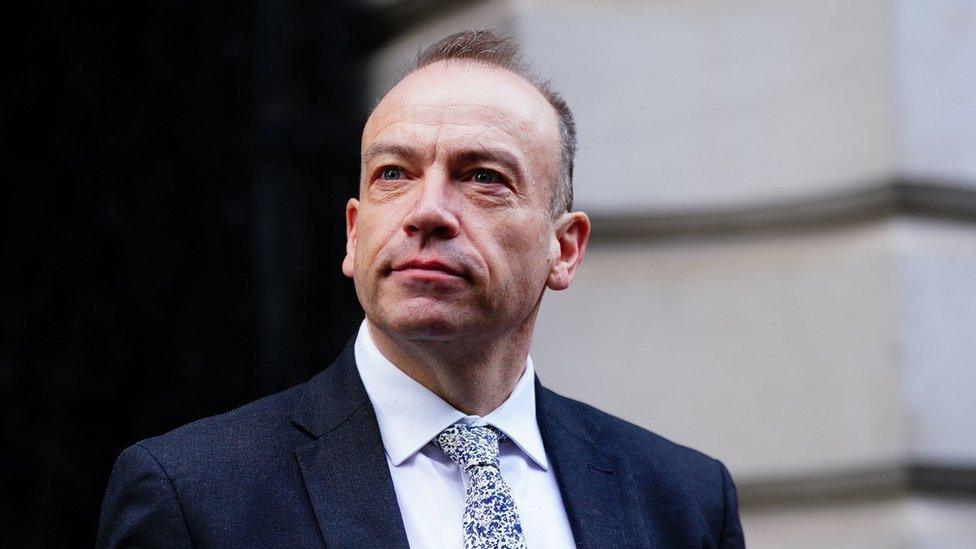
Northern Ireland Secretary Chris Heaton-Harris is likely to make the calls on spending totals for each department
He added it was "not an ordinary spending round" and that the scale of decision making will be "unprecedented".
School budgets have been hit already with the Department of Education axing "holiday hunger" payments and certain mental health services.
- Published4 April 2023

- Published14 November 2022
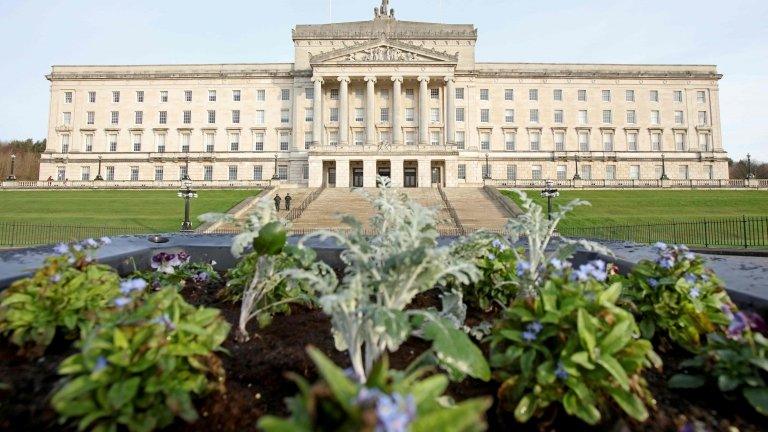
- Published28 November 2022
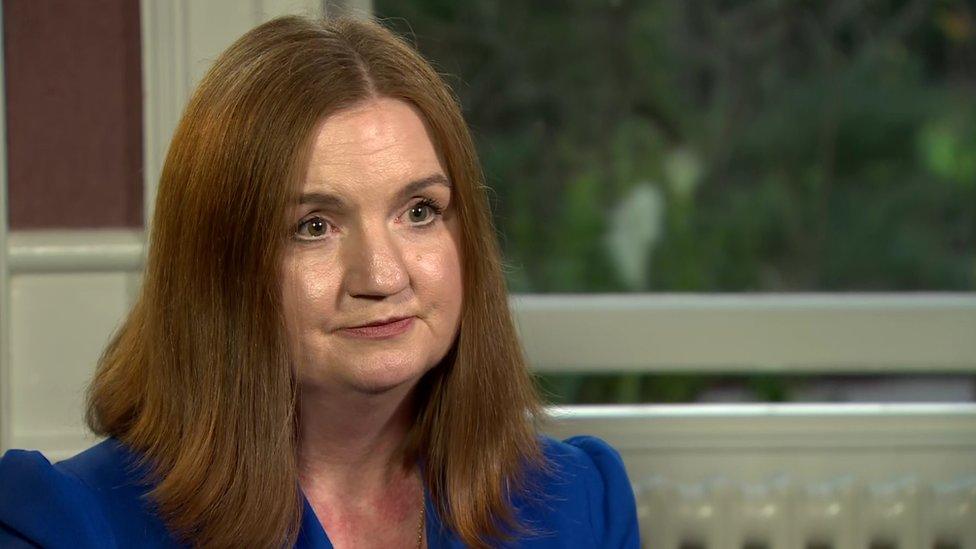
- Published28 March 2023
